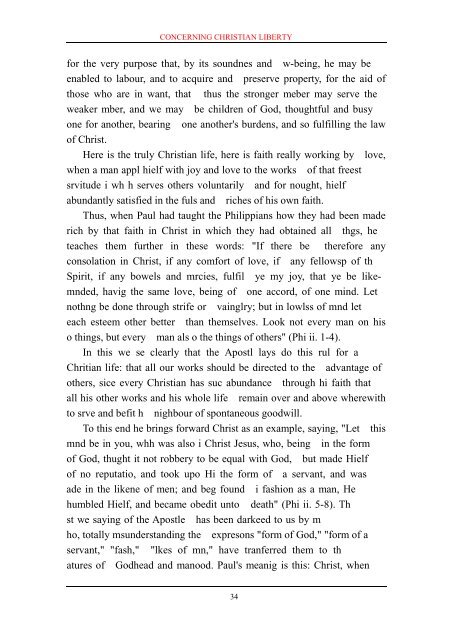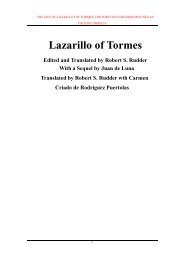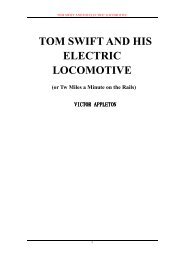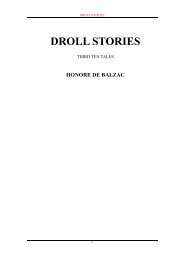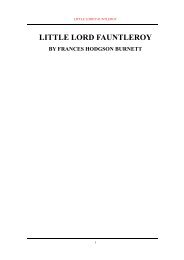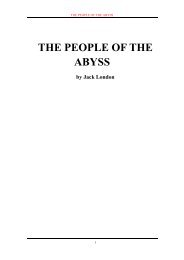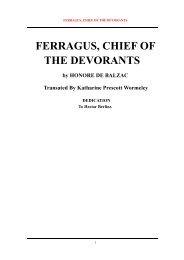CONCERNING CHRISTIAN LIBERTY
CONCERNING CHRISTIAN LIBERTY
CONCERNING CHRISTIAN LIBERTY
You also want an ePaper? Increase the reach of your titles
YUMPU automatically turns print PDFs into web optimized ePapers that Google loves.
<strong>CONCERNING</strong> <strong>CHRISTIAN</strong> <strong>LIBERTY</strong><br />
for the very purpose that, by its soundnes and w-being, he may be<br />
enabled to labour, and to acquire and preserve property, for the aid of<br />
those who are in want, that thus the stronger meber may serve the<br />
weaker mber, and we may be children of God, thoughtful and busy<br />
one for another, bearing one another's burdens, and so fulfilling the law<br />
of Christ.<br />
Here is the truly Christian life, here is faith really working by love,<br />
when a man appl hielf with joy and love to the works of that freest<br />
srvitude i wh h serves others voluntarily and for nought, hielf<br />
abundantly satisfied in the fuls and riches of his own faith.<br />
Thus, when Paul had taught the Philippians how they had been made<br />
rich by that faith in Christ in which they had obtained all thgs, he<br />
teaches them further in these words: "If there be therefore any<br />
consolation in Christ, if any comfort of love, if any fellowsp of th<br />
Spirit, if any bowels and mrcies, fulfil ye my joy, that ye be likemnded,<br />
havig the same love, being of one accord, of one mind. Let<br />
nothng be done through strife or vainglry; but in lowlss of mnd let<br />
each esteem other better than themselves. Look not every man on his<br />
o things, but every man als o the things of others" (Phi ii. 1-4).<br />
In this we se clearly that the Apostl lays do this rul for a<br />
Chritian life: that all our works should be directed to the advantage of<br />
others, sice every Christian has suc abundance through hi faith that<br />
all his other works and his whole life remain over and above wherewith<br />
to srve and befit h nighbour of spontaneous goodwill.<br />
To this end he brings forward Christ as an example, saying, "Let this<br />
mnd be in you, whh was also i Christ Jesus, who, being in the form<br />
of God, thught it not robbery to be equal with God, but made Hielf<br />
of no reputatio, and took upo Hi the form of a servant, and was<br />
ade in the likene of men; and beg found i fashion as a man, He<br />
humbled Hielf, and became obedit unto death" (Phi ii. 5-8). Th<br />
st we saying of the Apostle has been darkeed to us by m<br />
ho, totally msunderstanding the expresons "form of God," "form of a<br />
servant," "fash," "lkes of mn," have tranferred them to th<br />
atures of Godhead and manood. Paul's meanig is this: Christ, when<br />
34


